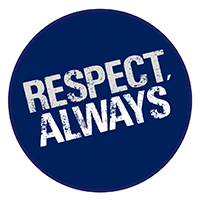Disability History Month: We caught up with the Staff Disability Network's Lucie Matthew-Jones
Our EDI team spoke to Lucie Matthew-Jones Reader, Humanities and Social Sciences, and Event Coordinator and Community Liaison for the Staff Disability Network in preparation for Disability History Month.
Lucie Matthew-Jones, Reader in Humanities and Social Sciences and the Events and Community Liaison for LJMU’s Staff Disability Network, spoke to Julia Daer, from the EDI Team, about hidden disabilities, the need for open conversations and intersectional equality work, and upcoming events during Disability History Month.

You have organised two events to celebrate Disability History Month at LJMU this year. Can you tell us a bit more about what we can expect?
We are about to start Disability History Month (18 November to 20 December). One of the themes for the UK’s Disability History Month this year is ‘Hidden Impairments’. I’ve organised these two events to explore this theme both in a historical context and in relation to where we are now. Our first event will be on the International Day of Disabled People / Persons with Disabilities on 3 December. The Staff Disability Network are keen to explore why we as staff and students don’t disclose our disabilities to the University as often as we might. This will be a panel discussion focusing on disability, disclosure and higher education with the following excellent invited speakers: Dr. Nicole Brown, Professor Kate Sang, and two student speakers from Disabled Students UK.
As a historian, I believe that we need to understand questions of marginalisation with a historical eye. Contemporary structural inequalities have historical roots. Professor Lucy Delap and Dr Sarah Crook will join us for our second event on 15 December. Prof Delap will be speaking about visible and invisible disabilities since the post-war period and Dr Crook will explore student mental health.
Disability has often been associated with vulnerability and, therefore, persons with disabilities have been seen as dependent on society. How can we change that?
The biggest issue disabled people face is that we are often the last group to have our needs acknowledged or recognised. We are often treated as a burden. In higher education we have rightly explored equality issues around race and gender, but this has not been matched by an investigation into the lived experiences of disabled higher education staff and students. We need to gain more knowledge and understanding of our lives as disabled, neurodivergent staff and students. There needs to be an honest conversation about how abled and neurotypical practices and structures disable us. Most importantly, we need to recognise that the intersectional nature of identities mean people can be oppressed in more than one way.
What are some of the biggest misconceptions about people with disabilities that you have come across?
I can only speak as someone with hidden disabilities (dyslexia and dyspraxia).
We need to stop seeing disabled people within a medical model that reads them as a drain or as having deficits. Abled, neurotypical people need to stand aside and start listening. This means inviting disabled colleagues to the conversation from the beginning and not as an afterthought. It means recognising that we have attributes and ways of doing things that enhance society and organisations.
What long-term change would you like to see at a national level?
I would like to see accessible and inclusive practices considered from the beginning. Disabled people should not have to fight to be included or heard. It’s tiring. For this reason, I would like to see more collaborative discussions that respect our wants and needs. Disabled and neurodivergent people deserve more.
Lucinda Matthew-Jones, Reader in Humanities and Social Sciences
Julia Daer, Equality, Diversity and Inclusion Advisor
- Join us for our virtual event for International Day of Persons with Disabilities 2021. Tickets available via Eventbrite (opens in a new tab).
- If you would like to join the Disability Staff Network, please get in touch at: equality@ljmu.ac.uk
 Respect Always
Respect Always
At LJMU, above all else, we want everyone who studies here, works here or works with us, to feel respected, and respect others.


